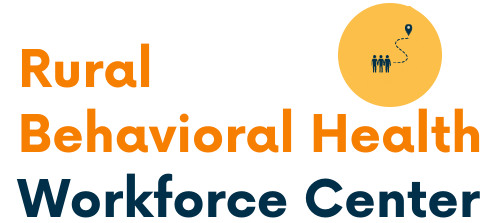Rural Behavioral Health Workforce Center
Helping bring new workers into the behavioral health workforce

Helping bring new workers into the behavioral health workforce
Definition:
"Behavioral health includes the emotions and behaviors that affect your overall well-being. Behavioral health is sometimes called mental health and often includes substance use. Just like physical health, behavioral health has trained providers who can help you much like a physical health care provider would."
- Centers for Medicare & Medicaid Services (CMS)
Settings where you might work:
The clinical role is the most broadly known and can refer to a counselor, clinician, therapist, or social worker. Those in clinical roles can do assessments, diagnose a patient/client, create a treatment plan, and provide a treatment modality. Those working as clinicians provide their services in many settings such as inpatient and outpatient treatment programs or part of crisis intervention teams. Some clinical roles can also work independently in their own private practice.
Typical tasks for clinical behavioral health work:
The non-clinical role is not as well-known but is crucial in the continuum of care. The non-clinical role is typically called a peer support specialist or recovery coach. Usually, these roles are filled by individuals who have lived experience. For peer support specialists in mental health, the individuals may have a mental health diagnosis. This lived experience enables the peer support specialist to use their experience to relate to the individual with whom they are working. Additionally, they provide hope and model recovery. Unlike clinical roles, the power differential in the peer relationship is minimal or nonexistent. These non-clinical roles do not ever provide a diagnosis, create a treatment plan, or provide any type of treatment. This role can support an individual as they create their recovery plan. Peers and Recovery Coaches can work in the same settings as the clinicians as part of the continuum of care except for private practice. Peer and Recovery Coaches are not permitted to work independently without supervision or connection to a larger entity.
Typical tasks for non-clinical behavioral health work: